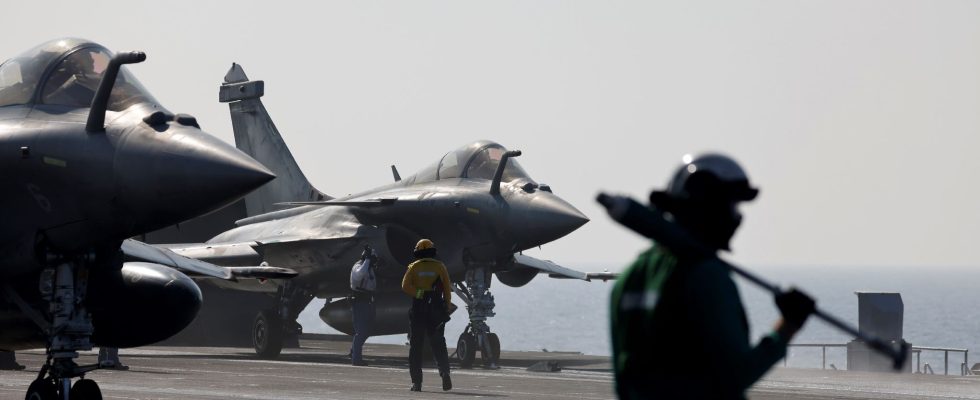After the dantesque debate on pensions, it is another subject which engages the future of France, which the National Assembly will seize in May, with the examination of the military programming law 2024- 2030. The financial challenge is massive: 413 billion euros between 2024 and 2030, or 2% of national wealth from 2025 against 1.7% today.
The return of a high-intensity conflict on European soil obviously weighs heavily in this significant increase in the resources allocated to our defense policy. The war in Ukraine will last and, beyond that, the Russian threat will continue, whether Russia emerges stronger or weaker from this conflict. The reasons that militate for an increase in military spending, however, go beyond the Ukrainian theatre: the increased risk of conflict is now part of the strategic landscape, for many years to come. And the climate crisis is no stranger to this: migratory movements, destabilization of States weakened by the consequences of climate change, for example in terms of food security, amplification of pre-existing conflicts under the effect of extreme events… interactions between the climate crisis and the risk of destabilization of States or regions are multifaceted.
Five of the six strategic missions assigned to the French armies by the 2022 national strategic review are affected by this new dialectic between climate and security. Firstly, conflict prevention: environmental problems will play a role in accelerating conflict in fragile States, which must already be anticipated if we want to “win the war before the war”. The so-called “protection-resilience” mission is not to be outdone: while the European leaders meeting in Ostend on April 24 want to make the North Sea a key region for the production of green electricity, it is, from the From a military point of view, there are so many new strategic infrastructures in the maritime environment to be protected. As for the intervention mission, it is accepted that the multiplication of crises, aggravated or created by the climatic situation, will require more and more – at what rate and in what proportions, no one knows – men and equipment military, with major consequences on the training and health of the forces as well as on the maintenance and renewal of equipment. It is certainly not today that geographical and meteorological conditions are key parameters for the smooth running of a military operation; on the other hand, the combination between more frequent interventions and the cascading effects of extreme events occurring in an increasingly urbanized world is new.
A golden subject to destabilize democracies
In the longer term, military equipment will also have to be adapted to the new climatic realities: any change in temperature or air pressure will have consequences on the performance of combat aircraft, missiles or satellites, thus reducing their scope. The chain consequences of these modifications are still largely unknown, due to a lack of data from the past allowing models and scenarios to be built. It is the “knowledge-understanding-anticipation” strategic function that needs to be completely rethought in this context: the deepening of this new theme of “climate security” calls for a structured dialogue between scientists and the military as well as a policy ambitious research and development program on new materials to be invented, which will also benefit civilian industry just as much.
Finally, the new function of influence identified by the national strategic review is also fully part of the equation. The climate issue is a golden subject for destabilizing Western societies, the favorite and ancestral game of authoritarian empires that handle new technologies with as much ease as weapons. Although Russia denies it, strong suspicions weigh on its role in the exacerbation of this popular and spontaneous movement that was initially the revolt of the yellow vests. This is just the beginning. We also expect to see foreign intrusions which will favor the sweet little music, especially aimed at young people, according to which Western democracies are incapable of acting on the climate. Even who will denounce any increase in military spending as an attack on the climate priority. A golden subject, we tell you.
*Cécile Maisonneuve is president of DECYSIVE and advisor to the Institut Montaigne.
